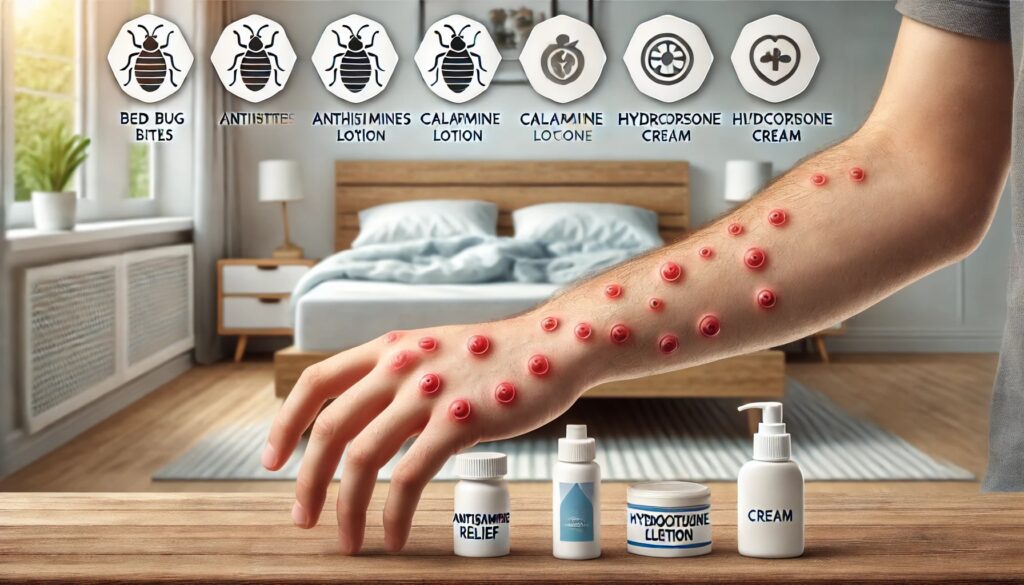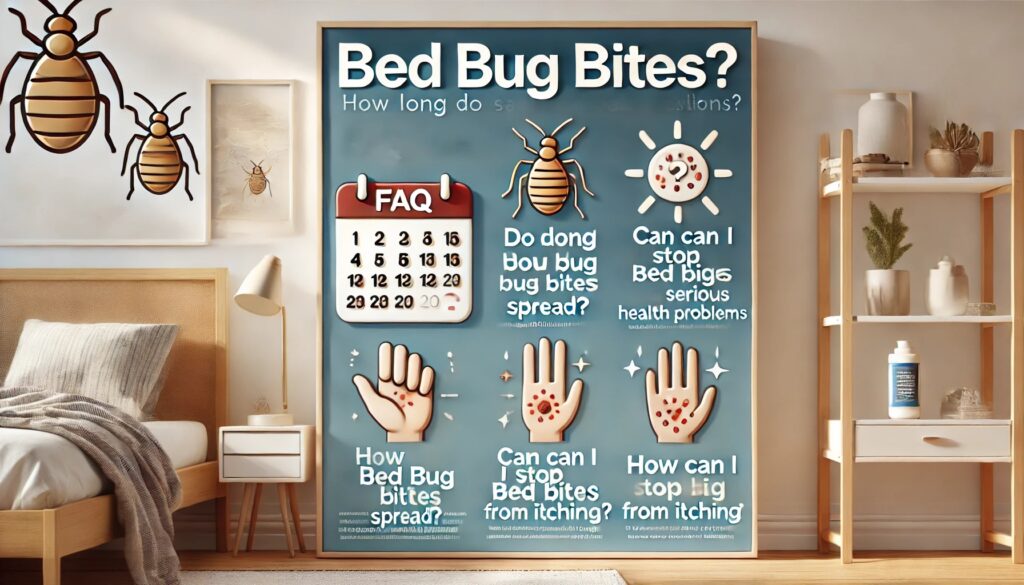Finding a bed bug bite is never a pleasant surprise. Waking up to itchy red welts and realising your bed has become home to more than just you can be downright stressful. At ThermoPest, we’ve helped plenty of people deal with bed bug infestations, and one of the first things they ask us is, “What do bed bug bites look like, and how do I treat them?”
Let’s break it down, from what bed bug bites look like to how you can get some quick relief and, most importantly, how to stop them from happening again.

Bed bug bites are tricky because they can easily be mistaken for bites from other insects like mosquitoes or fleas. It’s no wonder people often don’t realise they have a bed bug problem until it’s out of control.
If you’ve noticed red, itchy welts on your skin, especially in straight lines or small clusters, that’s a pretty solid sign of bed bugs. These bites tend to show up on skin that’s exposed while you’re asleep – think arms, neck, face, hands, and legs. The bites themselves can vary in size, and some people react more severely than others.
Another sneaky trick bed bugs have up their sleeves is the delayed reaction. You might not notice the bites right away. For some people, the reaction can take a day or two to appear, making it even harder to pinpoint what bit them. On top of that, everyone’s skin reacts differently. While some might experience intense itching and swelling, others may barely notice the bites at all.
For those who are allergic to bed bug bites, the situation can get a little more serious. In these cases, bites can turn into large, swollen areas, sometimes developing blisters or hives. If this sounds like you, it’s worth getting some medical advice on how best to treat the reaction.
Knowing what the bites look like is helpful, but it’s also important to rule out other pests. Bed bug bites can be confused with bites from mosquitoes, fleas, or even spiders, so how do you know for sure?
Unlike mosquito bites, which tend to be more scattered, bed bug bites often appear in a straight line or small cluster. They’re also more likely to show up on skin that was exposed during sleep, whereas flea bites are often found on lower legs and ankles.
Aside from the bites themselves, there are a few tell-tale signs of bed bugs. If you spot small blood stains on your sheets or little dark spots (which are bed bug droppings), it’s likely you’ve got an infestation. Of course, seeing a live bed bug is the clearest sign of all, but they’re good at hiding in mattress seams, furniture, and cracks.
Most of the time, bed bug bites can be treated at home, but if you’re dealing with a severe allergic reaction or your bites have become infected, it’s time to see a doctor. Infections from scratching can lead to more serious problems like cellulitis, so it’s always better to be safe than sorry.
So, you’ve discovered you’re dealing with bed bug bites—what next? Here’s how to get some relief and prevent those bites from becoming a bigger issue.
For most people, bed bug bites can be managed with a few simple home remedies. Start by washing the area with soap and water to reduce the risk of infection and soothe the skin. Applying an ice pack can help with any swelling, and if the itching is driving you mad, try using some over-the-counter anti-itch cream like calamine lotion or hydrocortisone cream. These will take the edge off while your skin heals.
If the bites are particularly itchy or swollen, antihistamine creams or oral antihistamines like cetirizine can help reduce the symptoms. You can easily pick these up at any pharmacy, and they work well for those who tend to react more strongly to bites.
If you’ve scratched the bites (and let’s be honest, it’s hard not to!), keep an eye out for signs of infection. If the area becomes red, swollen, or starts oozing, it’s time to use an antibiotic ointment or head to the doctor for advice. Keeping your nails short and avoiding scratching will help prevent infections in the first place.
For those who are dealing with an allergic reaction, taking an oral antihistamine can help soothe the itching and swelling. In more serious cases, you may need a prescription-strength cream from your doctor to manage the symptoms.
While treating the bites is important, stopping them from happening again should be your next priority. Bed bug infestations can get out of hand quickly, so taking action fast is key.
If you suspect bed bugs, the first step is a thorough inspection. Look at your mattress, bed frame, and any cracks or crevices around the room. If you find signs of bed bugs, such as tiny dark spots or eggs, it’s time to start treating the problem. Bed bug treatments like insecticides or professional pest control are effective ways to tackle infestations before they spread.
At ThermoPest, we always recommend using bed bug-proof mattress and pillow encasements. These covers trap any existing bed bugs inside while stopping new ones from getting in. It’s a simple but effective way to protect your bed and prevent future bites.
Bed bugs love to hide in clutter, so keeping your home clean and organised can help reduce their hiding spots. Regular vacuuming and washing bedding on high heat are also good habits to get into to keep bed bugs at bay.
If the infestation is out of control, don’t wait—call in the professionals. At ThermoPest, we offer comprehensive bed bug treatments that can eliminate bed bugs quickly and effectively, so you don’t have to worry about any more bites.
Sometimes, no matter how hard you try, those bed bugs just won’t go away. If you’re still getting bitten despite treating your home, or if you’re seeing more signs of bed bugs, it might be time to get professional help.
If you’ve tried home treatments and bed bug bites keep appearing, it’s a clear sign the infestation hasn’t been fully dealt with. Bed bugs can be notoriously difficult to get rid of, so professional treatments might be your best bet.
Even if you’re not seeing bites, there could be other signs of a bed bug problem, like blood spots on your bedding or finding bugs themselves. The sooner you deal with the infestation, the easier it is to manage.
How long do bed bug bites last?
Bed bug bites can last anywhere from a few days to a week, depending on your skin’s reaction and how well you treat them.
Do bed bug bites spread?
No, bed bug bites themselves don’t spread, but scratching can cause irritation and lead to infection, which can worsen the area.
Can bed bug bites cause serious health problems?
While bed bug bites aren’t known to cause serious health issues, severe allergic reactions or infections from scratching can be a concern.
How can I stop bed bug bites from itching?
To stop the itching, apply a topical anti-itch cream or take an oral antihistamine. Avoid scratching to prevent the bites from becoming infected.

Bed bug bites are more than just an inconvenience. They can be irritating, painful, and, in some cases, lead to more serious issues like infections or allergic reactions. At ThermoPest, we’re here to help you deal with bed bug bites and, more importantly, prevent them from happening again. Whether it’s DIY treatments or professional pest control, we’ve got the tools to get your home bed bug-free in no time.
Get in touch today, and let’s make those bed bug bites a thing of the past!